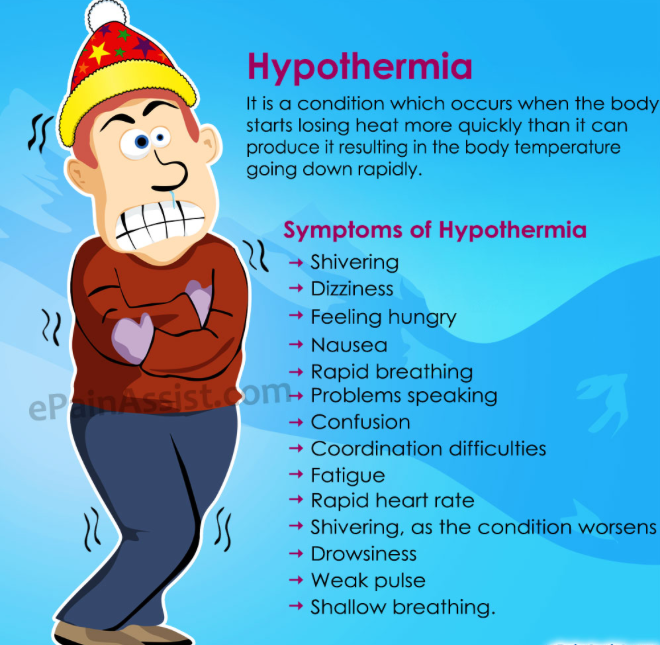By Maureen Daniels - December 2020
Be sure to add water temperature to the things you should consider before heading out. You likely know what the air temperature is. Any idea what the water temperature is? As I write this, the temp on Lake Anna is 53 degrees Fahrenheit.
So how could that affect you at this time of year on the water? 
According to the U.S. Coast Guard, a sudden immersion into cold water, even on a warmish, sunny day, can bring on hypothermia in as little as 3-5 minutes.
Cold water sucks heat from the body, and the body’s core temperature drops. This can lead to loss of consciousness and, ultimately, death. Hypothermia happens very quickly.
What are the first symptoms of cold water shock?
Initial “cold shock” occurs in the first 3-5 minutes of immersion in cold water. Sudden immersion into cold water can cause immediate, involuntary gasping; hyperventilation; panic; and vertigo—all of which can result in water inhalation and drowning.
All of us know what various air temperatures feel like so we dress accordingly. Many of us know how chilling that first dip into the Lake in May can feel. Jump in, gasp! Lips might turn blue. Get out, shiver. That is a mild case of hypothermia. Imagine being immersed in that cold water for any length of time. Most of us have never experienced being in extremely cold water, so it is hard to imagine the consequences.
Normal body temperature is about 98.6F. Treat any water temperature below 70F with caution. Swimming in temperatures below 70 degrees can lead to increased heart rate and blood pressure, which can put you at risk. 
Prepare for the unexpected.
In the fall and winter, you likely are not planning to be in the water. However, capsizing, swamping, and falling overboard are leading causes of cold water immersion—not planned events.
If you end up in the water, do you have a way to get back onto your boat, board, kayak or canoe?
What you can do to be safe and enjoy your time on the water
1. Wear a Coast Guard approved life jacket. It will not do you any good if you end up in the cold water and your life jacket is on the boat or paddle craft. A life jacket will increase your chances of surviving cold water immersion.
2. Be sure whatever vessel you are using is in good shape—gassed up, charged battery, drain plug installed, appropriate paddles.
3. In paddle craft especially, keep a low center of gravity, distribute weight evenly.
4. Let someone know that you are out on the water, where you expect to go, and when you plan to come off the water.
What you should do if you do end up in cold water . .
Try not to panic.
Get your breathing under control
Leave layers of clothing on to help prevent body heat loss
If possible, stay with the vessel and get as much of your body out of the water as possible.
Remember— your life jacket will help support you.
Lastly, seek medical help as soon as possible, as post-immersion collapse can happen during or after a rescue. A drop in blood pressure can lead to cardiac arrest.
On thin ice . . .When in doubt, don’t go out! While some parts of the Lake may look like they are completely frozen over, do not take any chances. Ice freezes and thaws at different rates and ice thickness can vary depending on currents, springs, depth and debris in the water.
This is another circumstance that puts you at high risk for hypothermia if you were to fall through the ice.
Don’t forget . . .Protect your pets! They can be susceptible to the same health issues and life threatening circumstances when in cold water. If it is too cold for you to be in the water, it could be too cold for them, as well. If you are not comfortable going out on the ice, don’t let your pets venture out either.
Be safe!
Avoid Spot and Treat Frostbite & Hypothermia
